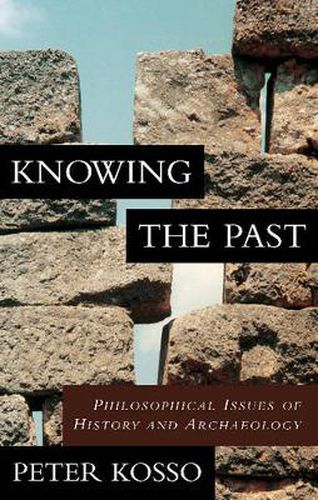Readings Newsletter
Become a Readings Member to make your shopping experience even easier.
Sign in or sign up for free!
You’re not far away from qualifying for FREE standard shipping within Australia
You’ve qualified for FREE standard shipping within Australia
The cart is loading…






How can we know what really happened in the distant past in places like ancient Egypt, Mesopotamia, Palestine, Greece, and Rome, especially since the evidence is fragmentary and ancient cultures are so different from our own frame of reference? In this fascinating study of epistemology, philosopher Peter Kosso argues for a coherence model of epistemic justification. In the first part, the conceptual argument, he proposes a model of knowledge of the past. In the second part he presents three detailed case studies drawn from the work of historians and archaeologists. These studies are used to support and fine-tune the model outlined in the first part. Kosso presents many insights into the limits of knowledge and our ability to know the mental as well as the physical past. Historians, archaeologists, philosophers, and students interested in epistemology will find this accessible work to be of great value.
$9.00 standard shipping within Australia
FREE standard shipping within Australia for orders over $100.00
Express & International shipping calculated at checkout
How can we know what really happened in the distant past in places like ancient Egypt, Mesopotamia, Palestine, Greece, and Rome, especially since the evidence is fragmentary and ancient cultures are so different from our own frame of reference? In this fascinating study of epistemology, philosopher Peter Kosso argues for a coherence model of epistemic justification. In the first part, the conceptual argument, he proposes a model of knowledge of the past. In the second part he presents three detailed case studies drawn from the work of historians and archaeologists. These studies are used to support and fine-tune the model outlined in the first part. Kosso presents many insights into the limits of knowledge and our ability to know the mental as well as the physical past. Historians, archaeologists, philosophers, and students interested in epistemology will find this accessible work to be of great value.